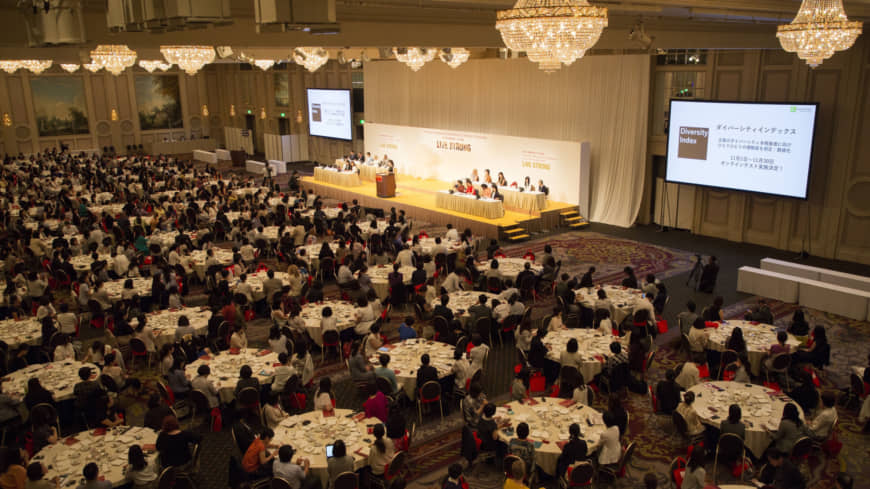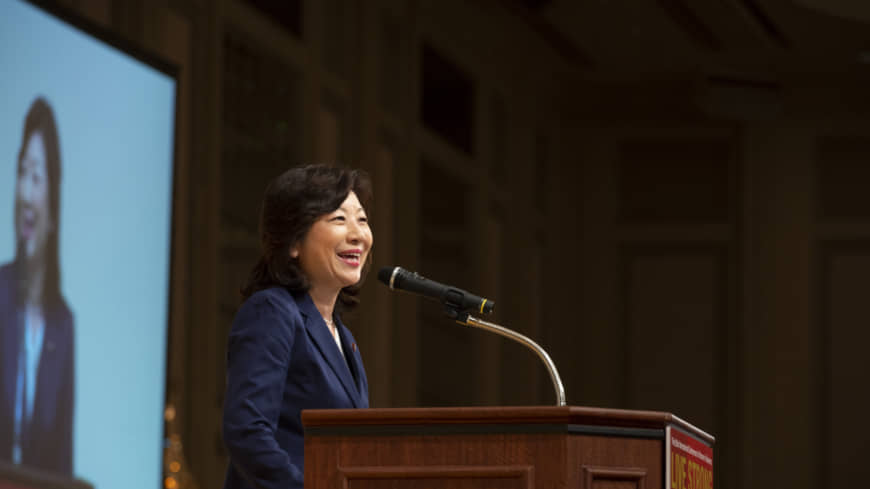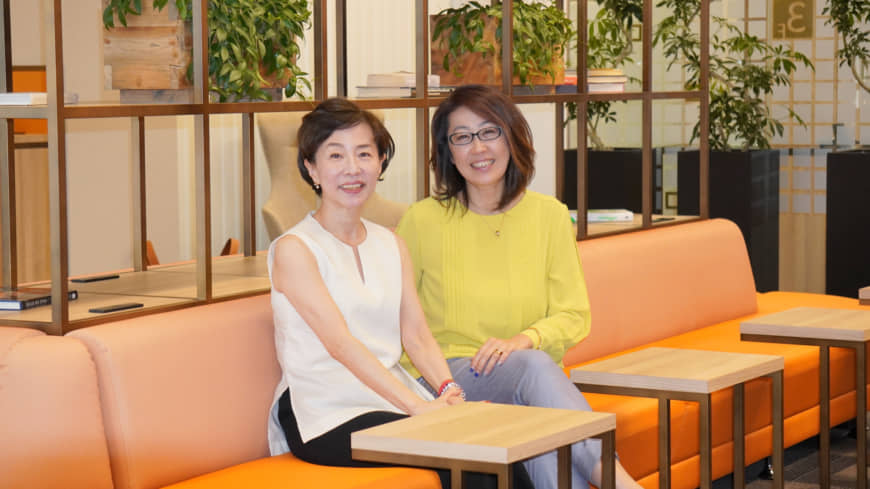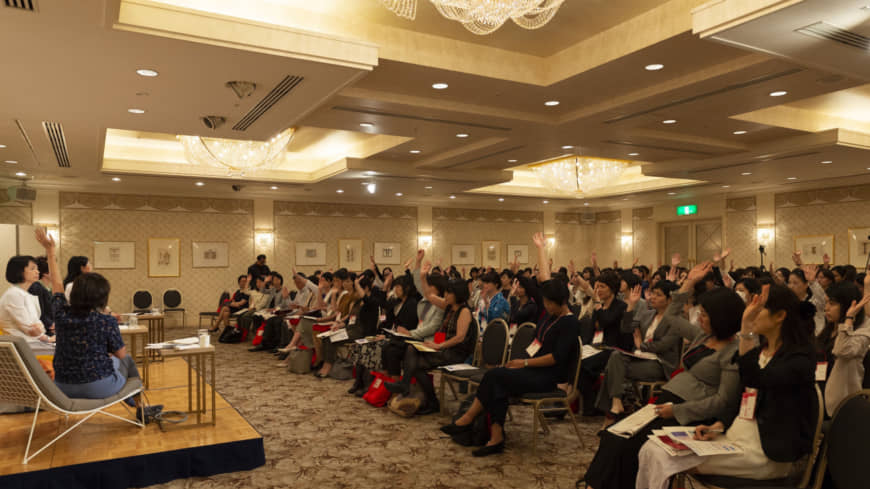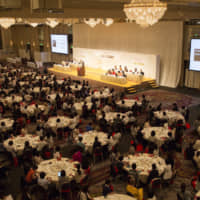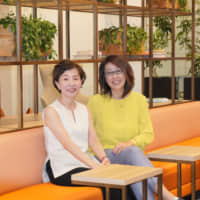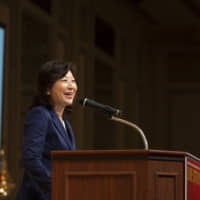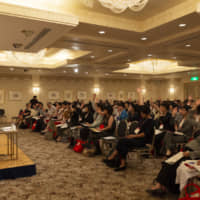Diversity is at the core of many of the labor and economic policies designed by the current government, including work-style reforms and promotion of women’s participation in society. How much has actually changed in Japanese workplaces? Are they becoming more diverse in all aspects?
Prior to the 24th International Conference for Women in Business (ICWB), Kaori Sasaki, the founder and CEO of consultancy ewoman Inc. and Unicul International Inc., and Yuka Shimada, human resources and GA director of Unilever Japan Holdings K.K., shared their views on the current situation and discussed how to ensure workplace diversity and what benefits it brings to organizations and people. They also talked about this year’s ICWB, which will be hosted by ewoman on July 7 at the Grand Nikko Tokyo Daiba hotel in Tokyo’s Minato Ward.
“Firstly, diversity is about having multiple perspectives, which is exactly what is needed to inspire innovation,” said Sasaki. “So, it is something that a company has to have to continue growing.”
The expansion of investments based on environmental, social and governance factors is noteworthy both domestically and internationally in recent years, and diversity in the workplace, which has a positive social impact, has become one of the important factors that investors base their decisions on.
However, it is difficult to measure diversity inside a company. “It’s not just about a ratio of nationalities or gender. It is more about the mentality and actions of personnel,” Sasaki noted, adding that is why ewoman invented a Diversity Index that consists of extensive exams, surveys, analysis and training of all employees. The index was launched last year with support from more than 30 committee members and advisers from various business sectors.
The Diversity Index is aimed at accumulating data and proving the correlation between the participating companies’ levels of diversity and their achievements such as profitability, return on equity or stock price. “I expect the index to factor into meaningful long-term investments by the companies that are making substantial diversity efforts,” Sasaki said.
Unilever’s Shimada said that for a company to make positive changes to achieve diversity, both internal and external coaching are effective. “The internal coach is typically the head of the human resources, like me. It is absolutely necessary for a leader to have a partner who is passionate about making the best use of the company’s human resources,” she said.
Shimada explained that an outside coach could be someone like an executive coach who can bring new values and perspectives to a company. “I think that the Diversity Index and ICWB provide such opportunities,” she said.
Gender is one of the factors that makes up diversity. According to the Global Gender Gap Report published by the World Economic Forum (WEF), Japan’s rank has improved from 114th out of 149 countries in 2017 to 110th last year because of improvements in areas such as educational attainment, and economic participation and opportunity.
Sasaki, however, asked WEF to lower Japan’s rank a little more when she visited their headquarters in Switzerland this year. “They said I was the first person who complained about an improved ranking of her own country. But I said that because efforts could decrease if people start to feel satisfied,” Sasaki said.
What the gender gap figure suggests is that Japan is not making the most of its female human resources. “According to the OECD’s adult skills index, Japanese women ranked at the top, which means that this is the resource we can use to drive further economic growth in Japan,” Sasaki said. “Women could also be good at grasping various aspects of an issue because they have traditionally taken on multiple roles in life.”
She also pointed out that some companies are making up new managerial positions in name only with no subordinates or decision-making power, just to show improvement in the percentage of women in leadership positions. “More substantial efforts are needed to make a real change; for example, making it a rule to nominate one male and one female candidate prior to deciding who to promote to a managerial position. That way, people will really start to evaluate the potential of a female workforce and provide the necessary training.”
Shimada also commented: “We shouldn’t focus too much on numbers and percentages. What’s more important is something that’s not visible: what process we go through in achieving targets, how people feel, what they see and so on.” Because of her extensive career in HR and having always been interested in people, Shimada stressed that it is always “people” that make changes, not “companies.” “There is no such creature as a ‘company’ that thinks and does something for you. People, including yourself, make up a company, and if people change, the company will change,” she said.
“Scale Up” is this year’s ICWB theme. Sasaki pointed out that some say women like to keep things small. It is easier to keep things in control if they are smaller, but she encourages women to take on bigger challenges in their businesses and be more powerful drivers of societal change — things they are certainly capable of.
For the first time this year, the annual event that has inspired people and society with thoughts and ideas to maximize the power of women accepted pre-registration online before the announcement of any programs and speakers. “We were thrilled to see more than 100 people signed up as early-bird registrants. Those are the people who know that they will get something out of the conference, whoever the speakers are, if they act positively,” she said.
Over 800 people from junior high school students to those in their 80s attended last year’s conference and approximately 10 percent of the participants were men. Sasaki recalled that one of the male participants came up to her after the conference last year, and exclaimed, “This year’s event was better than last year’s!”
“It is not because the quality had improved, but because he only observed the event the first time, whereas he actually participated and mingled with others the second time,” Sasaki said.
Shimada, who will also attend the conference as one of the panelists for a roundtable session, said: “Look, it is such a joy that we have so much to learn every day from our daily lives. It is all about how you feel and act.”
During the 10-hour conference, there will be three main speeches, including one from Junko Nakagawa, the first female president and chief executive officer of Nomura Asset Management Co., followed by five discussion sessions with speakers from diverse sectors such as media, commerce, international organizations and politics.
In the afternoon, there will be 10 roundtable sessions from which participants can select two to attend on the day. Some of the sessions are conducted in English only, with no interpretation provided. Roundtable topics include scaling up women’s engagement, as well as activities in various fields ranging from personal development, such as career building, management skills and leadership, to Japan’s regional development, the U.N.’s sustainable development goals and global policies.
This year’s conference can be a life-shifting experience for participants if they immerse themselves in it. They will not only learn, they will also truly experience it and that’s something to treasure,” Sasaki said.
Download the PDF of this Conference for women in business Special



